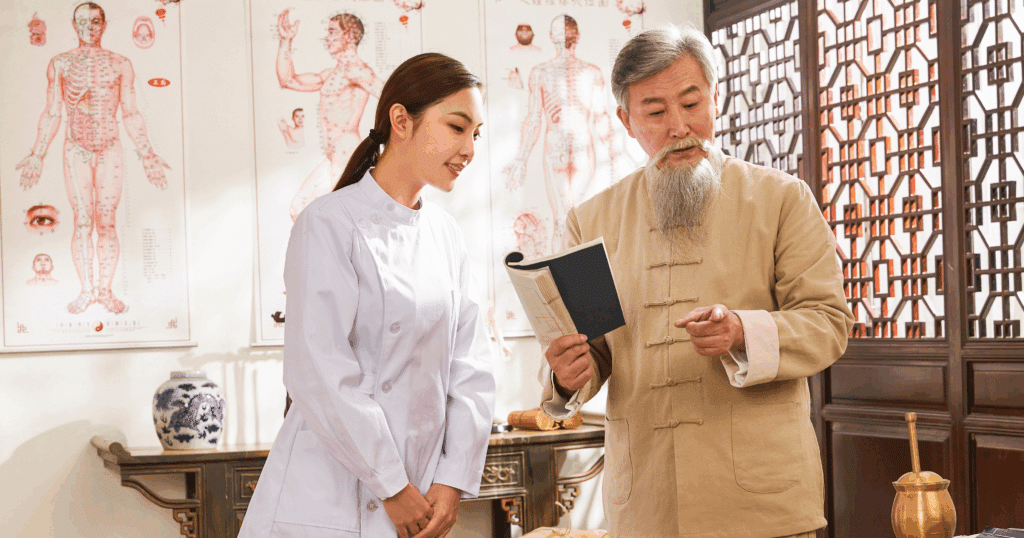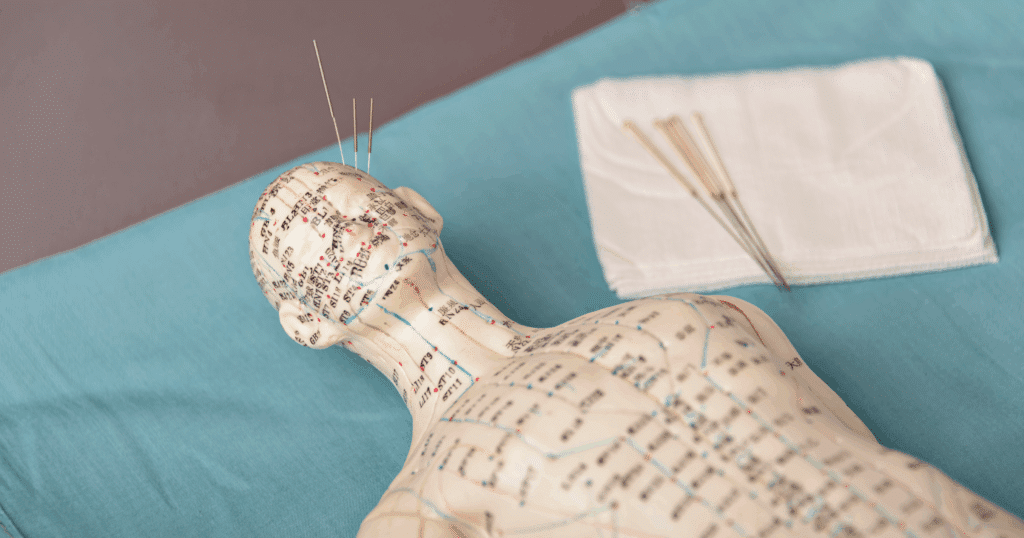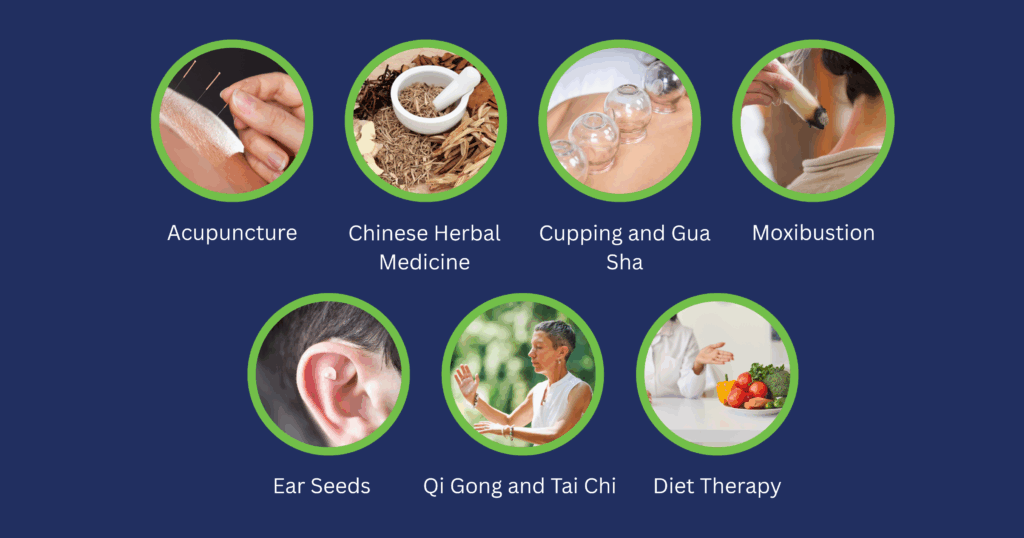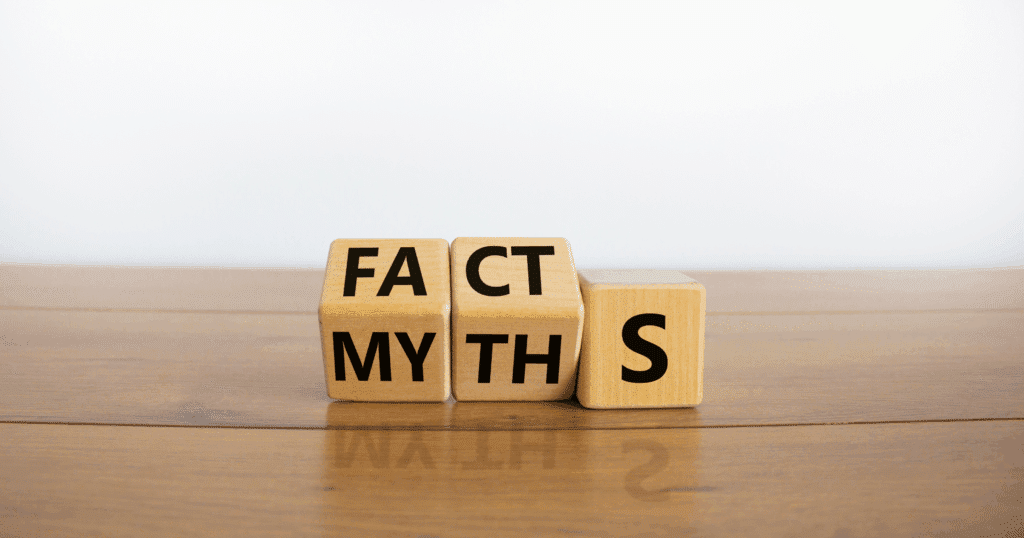Traditional Chinese Medicine, or TCM, is an ancient healthcare system that focuses on the balance and harmony of energy within the body and mind. It centers on the vital life force called Qi, which flows through pathways known as meridians, and strives to maintain equilibrium between the opposing forces of Yin and Yang. When these energies are balanced, our health flourishes; when they are disrupted, stress and emotional imbalances can take hold. Traditional Chinese Medicine is a holistic approach that restores health by harmonizing the body’s energy flow and balancing Yin and Yang.
Stress and emotional upheaval impact far more than the mind; they influence digestion, sleep, immunity, and overall vitality. TCM views these challenges as disruptions in energy and organ harmony rather than isolated issues. This perspective enables a deeper understanding of health and encourages healing strategies that nurture both body and spirit, supporting whole-person wellness.
Key Takeaways
- Traditional Chinese Medicine balances Qi by restoring smooth energy flow through meridians, which directly reduces stress and emotional strain.
- Yin and Yang harmony support wellness since an imbalance between these forces often leads to anxiety, fatigue, or mood swings.
- The Five Elements link emotions and organs by showing how anger, grief, or fear disrupt both mental and physical health.
- Stress in TCM is seen as Qi stagnation that manifests in real symptoms like headaches, poor digestion, or low immunity.
- Holistic practices such as acupuncture and herbal medicine offer natural ways to calm the mind, ease tension, and rebuild resilience.
Fundamentals of Traditional Chinese Medicine
Core Concepts: Qi (Vital Energy) and Meridians
Qi is the fundamental energy or life force that flows through the entire body, nourishing every cell and organ. It travels along pathways called meridians, creating a complex network that connects different parts of the body and supports overall health. When Qi flows freely and evenly, the body functions in harmony, but when blocked or deficient, imbalance and illness can develop.
Yin and Yang: Balancing Opposing Forces
Yin and Yang represent universal dynamic forces that are opposite yet complementary, such as cold and warm, rest and activity, or darkness and light. Maintaining a graceful balance between Yin and Yang is essential for health. For example, if Yang energy, which embodies heat and movement, becomes excessive compared to Yin, symptoms like irritability, anxiety, or restlessness may appear.
The Five Elements Theory and Emotional Connections
The Five Elements: Wood, Fire, Earth, Metal, and Water symbolize natural forces and correspond to bodily organs and emotions. Each element influences a particular organ and its related feelings, such as Wood with the Liver and anger, or Metal with the Lungs and grief. Imbalances among these elements not only cause physical symptoms but can also disrupt emotional health, fostering conditions such as stress or mood disorders.
Consequences of Imbalance and Blocked Qi
When Qi flow is obstructed or organs lose their proper coordination, it can lead to physical discomfort and emotional distress. This holistic perspective explains why stress and emotional issues can manifest as real physical symptoms. Understanding these interconnections forms the foundation of TCM’s approach to diagnosing and treating health problems by addressing both body and mind cohesively.
How Stress and Emotions Affect Health in TCM
Traditional Chinese Medicine offers a unique understanding that emotions are not just mental or psychological experiences but are deeply connected to our physical health. Each emotion directly influences a specific organ, creating a complex interplay between mind and body that can either maintain harmony or cause illness.
Here is how these connections appear in TCM:
- Anger and the Liver: Persistent anger or frustration can cause Liver Qi stagnation. This blockage often manifests as tension headaches, irritability, menstrual irregularities, or digestive upset.
- Joy and the Heart: While joy is positive, an excess can overstimulate the Heart, leading to feelings of restlessness, insomnia, or even palpitations.
- Worry and the Spleen: Overthinking or excessive worrying interferes with the Spleen’s function, weakening digestion and causing fatigue or muscle weakness.
- Sadness and the Lungs: Grief or sadness impacts Lung Qi, which may bring about shortness of breath, low energy, or a weakened immune response.
- Fear and the Kidneys: Fear unsettles the Kidneys, influencing energy reserves and sometimes causing anxiety, weakness, or urinary symptoms.
When these emotions persist unchecked, they create blockages or disruptions in the flow of Qi, the vital energy that circulates through the body. This Qi stagnation then contributes to both emotional symptoms and physical complaints, signaling deeper imbalances.
TCM Diagnostic Approach to Stress and Emotions
Diagnosing emotional and stress-related imbalances in TCM requires a holistic perspective that embraces body, mind, and spirit as one. Practitioners assess the entire individual, considering lifestyle, emotional state, and physical symptoms. A key diagnostic tool includes pulse and tongue analysis, each reflecting the body’s energetic state.
Qi stagnation, often a hallmark of stress, is identified through symptoms of fullness, tightness, or mood changes. Determining which organs are disrupted guides a personalized approach. For instance, congested Liver Qi may present with irritability and headaches, while Spleen Qi deficiency might reveal fatigue and poor digestion.
Beyond physical signs, emotional assessment is woven into consultation, underscoring the belief that emotional well-being is inseparable from physical health. This approach allows for tailored treatment plans designed to restore balance uniquely for each person.
Traditional Chinese Medicine Practices for Stress Relief
1. Acupuncture
Acupuncture gently stimulates specific points along meridians, unlocking blockages and restoring Qi flow. Beyond pain relief, it is remarkably effective for stress, anxiety, and insomnia by calming the nervous system and promoting hormonal balance. Regular sessions can reduce cortisol levels and improve mood, bringing profound relaxation even in the busiest lives.
2. Chinese Herbal Medicine
Herbal therapy in TCM employs time-honored formulas customized for individual needs. For instance, Xiao Yao San (Free and Easy Wanderer) is renowned for easing liver Qi stagnation, alleviating mood swings, and tension. These carefully crafted blends nourish organs, harmonize emotions, and support the immune system gently yet powerfully.
3. Cupping and Gua Sha
Cupping uses suction cups to lift the skin, increasing circulation and releasing muscle tightness often linked with stress. It also physically clears stagnation in energy pathways. Similarly, Gua Sha involves scraping the skin with a smooth tool to invigorate circulation, reduce inflammation, and uplift mood.
4. Moxibustion
Applying heat via burning mugwort (moxa) near acupuncture points, moxibustion warms the body, strengthens Yang energy, and soothes tension. This could be particularly helpful for individuals feeling cold, fatigued, or emotionally depleted.
5. Ear Seeds
Using tiny seeds placed on specific points of the ear, this discreet therapy stimulates calming pathways. Patients can press ear seeds between sessions, empowering self-care to manage anxiety and emotional distress conveniently.
6. Qi Gong and Tai Chi
These elegant, meditative movements blend breath, motion, and mental focus to restore balance. Scientific studies confirm their effectiveness in reducing anxiety and depressive symptoms by regulating the nervous system and enhancing energy flow. Practicing these daily fosters resilience not only physically but emotionally.
7. Diet Therapy
Food profoundly affects our energetic balance. TCM nutrition emphasizes eating in harmony with the seasons and individual constitution. For stress and emotional health, nourishing Yin foods (like leafy greens and cooling fruits) or Yang foods (like warming spices and root vegetables) are advised according to symptoms, aiming to restore internal harmony through what we eat.
How TCM Promotes Emotional Balance
TCM views emotional balance as the result of smooth Qi flow and organ harmony grounded in daily habits and lifestyle. Restoring this balance helps clear mental fog, calm racing thoughts, and lift mood. Treatment focuses on nourishing the heart and calming the mind while strengthening organ systems that buffer stress.
Ongoing prevention plays a critical role. Encouraging lifestyle choices that support Qi, including mindful movement, balanced nutrition, and regular rest, builds resilience to emotional disturbances before they disrupt wellbeing.
Scientific Perspectives and Integrative Use
Recent studies increasingly support the value of Traditional Chinese Medicine (TCM) in addressing emotional health challenges such as anxiety and depression. Strong evidence from meta-analyses shows that mind-body practices like Tai Chi and Qigong can significantly reduce symptoms of anxiety and depression, sometimes even more effectively than standard exercise programs. Acupuncture has been found to influence brain areas involved in emotional regulation and to safely lower stress hormone levels, providing a natural way to rebalance the nervous system.
TCM shines as a complementary approach alongside conventional care, offering gentle, low-risk methods that promote both mental wellness and physical health. Patients often share that integrating TCM therapies helps them feel calmer, reduces tension, and improves overall quality of life.
Practical Tips for Incorporating TCM into Everyday Life
You don’t have to wait until stress or emotional issues take hold to benefit from Traditional Chinese Medicine. Small, mindful habits woven into your daily routine can have a profound impact on your overall wellbeing. Taking active steps to nurture your Qi and balance your energy often leads to lasting calm and resilience.
Here are practical ways to bring TCM wisdom into your life:
- Practice mindful breathing and meditation: Simple deep breathing or focused meditation calms the nervous system and clears blocked energy. Even a few minutes daily can sharpen mental clarity and ease tension.
- Engage in gentle Qi Gong or Tai Chi: These graceful, flowing movements combine breath and motion to harmonize your energy and release stress physically and emotionally.
- Sip on calming herbal teas: Chamomile, chrysanthemum, and other traditional herbs soothe digestion and support emotional balance.
- Eat seasonally and mindfully: Choose foods that balance Yin and Yang according to your constitution and the season to nourish your organs and maintain harmony.
- Listen to your body’s rhythms: Honor natural cycles by making time for rest, movement, and self-care that align with your needs.
When stress lingers or emotional challenges persist, seeking professional TCM guidance offers tailored therapies like acupuncture and herbal medicine that address root causes and restore balance.
Common Myths and Misconceptions About TCM and Emotional Health
Myth 1: Qi is purely mystical and unscientific
There is a common misconception that Qi, the vital energy in TCM, is simply a mystical concept without a basis in reality. However, Qi can be understood as a form of physiological energy that corresponds to measurable processes such as nerve activity and blood flow. Modern science increasingly recognizes parallels between traditional meridians and nerve pathways, suggesting that Qi represents real biological phenomena.
Myth 2: Herbal medicines are unsafe or cause harmful side effects
Many people worry that Chinese herbal medicine may be unsafe, toxic, or interact negatively with conventional drugs. In truth, experienced TCM practitioners carefully customize herbal formulas for each individual, considering their unique constitution and health condition. When well-managed, herbal treatments are typically gentle, safe, and play an important role in restoring balance without side effects.
Myth 3: TCM is a miracle cure with instant results
Some expect TCM to deliver quick fixes or magical cures. While TCM offers profound benefits, it works by gradually restoring balance and building resilience over time. This system supports long-term emotional and physical health through lifestyle, diet, and personalized treatments rather than providing rapid symptom suppression.
Myth 4: Emotional problems are purely mental and separate from the body
Unlike Western approaches that often isolate mental health from physical health, TCM sees emotional disturbances as intimately connected to organ function and energy flow. Emotions are both causes and effects of bodily imbalances, so treating the whole person, body and mind, is essential for lasting healing.
Myth 5: Acupuncture is painful or invasive
Acupuncture is sometimes feared as painful or frightening. However, the needles are extremely thin and inserted with skill and care, often causing little to no discomfort. Many patients describe acupuncture as deeply relaxing, with therapeutic benefits extending beyond pain relief to reduce anxiety and promote emotional calm.
Myth 6: TCM treatments lack any scientific support
While rooted in ancient wisdom, TCM is increasingly supported by modern scientific studies. Research demonstrates acupuncture’s effects on nervous system regulation and herbal medicine’s bioactive compounds. Integrative approaches combining TCM and conventional care provide comprehensive, evidence-based options for emotional wellness.
Why Traditional Chinese Medicine Is Essential for Lasting Stress Relief and Emotional Well-being
Traditional Chinese Medicine offers a profound, compassionate, and comprehensive path for addressing the emotional burdens of modern life. By focusing on the whole person and restoring energetic and organ balance, TCM helps calm the mind, soothe the body, and rebuild resilience to stress.
We encourage you to explore this integrative healing tradition and consider how TCM practices might enrich your journey toward long-lasting emotional well-being and balance. At ACA Acupuncture & Wellness, we are dedicated to guiding you through this holistic approach, blending ancient wisdom with contemporary care to empower your health every step of the way.






Recent Comments